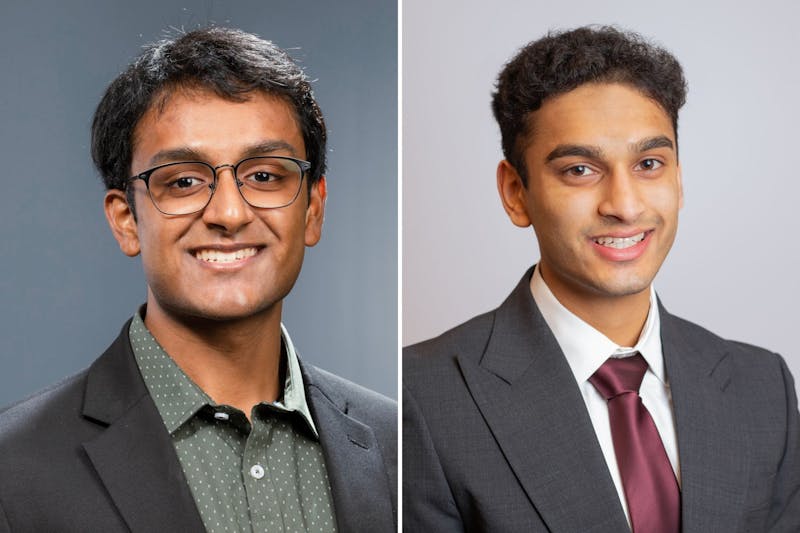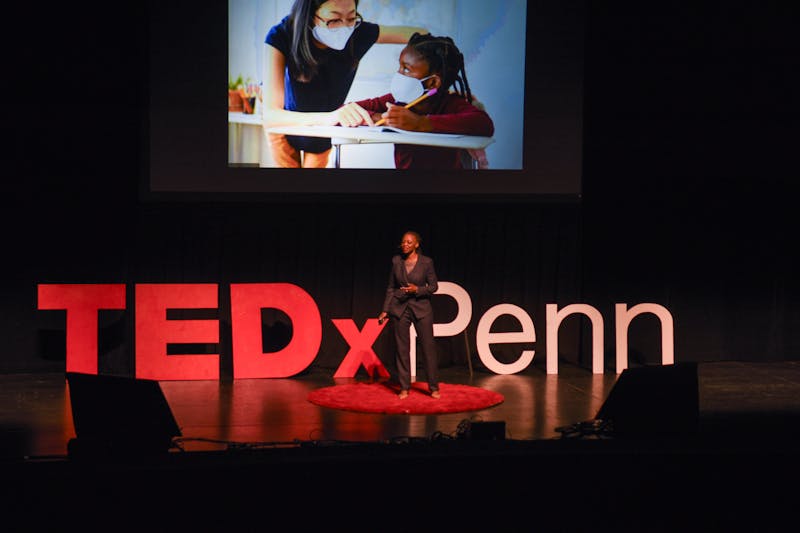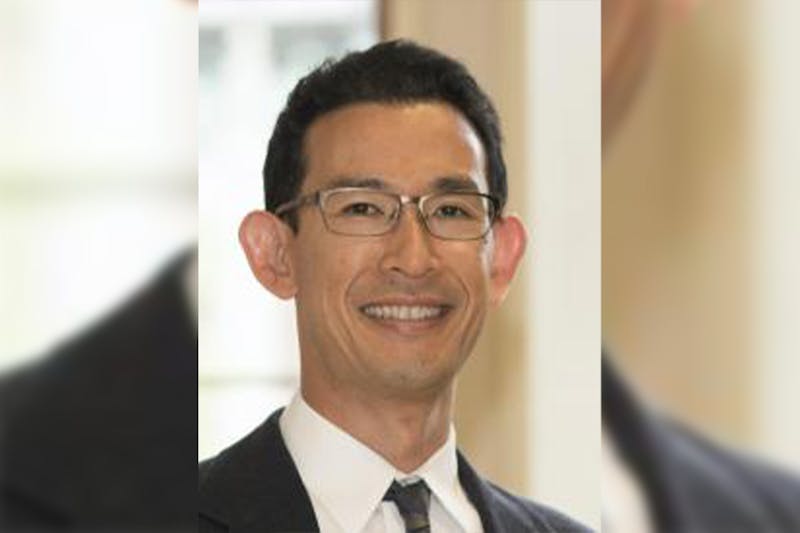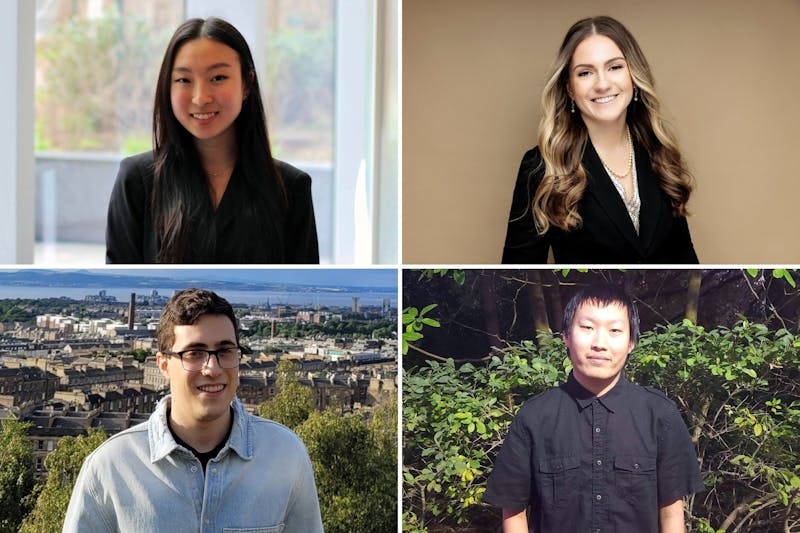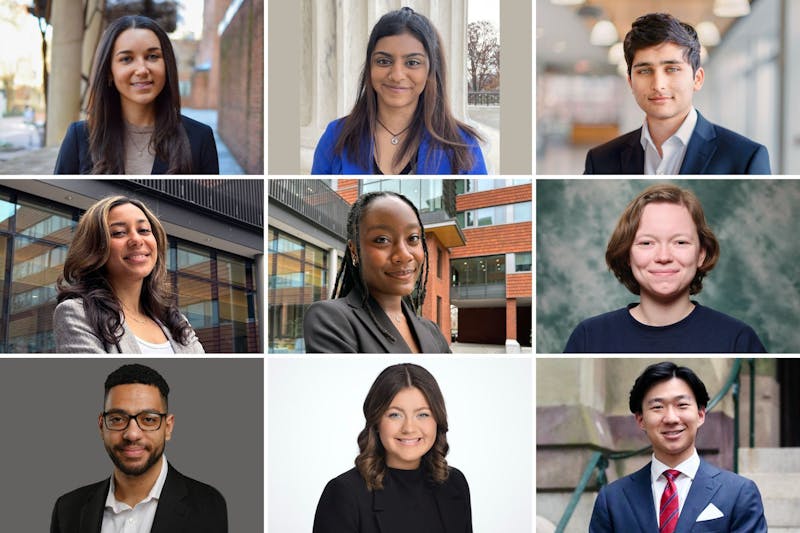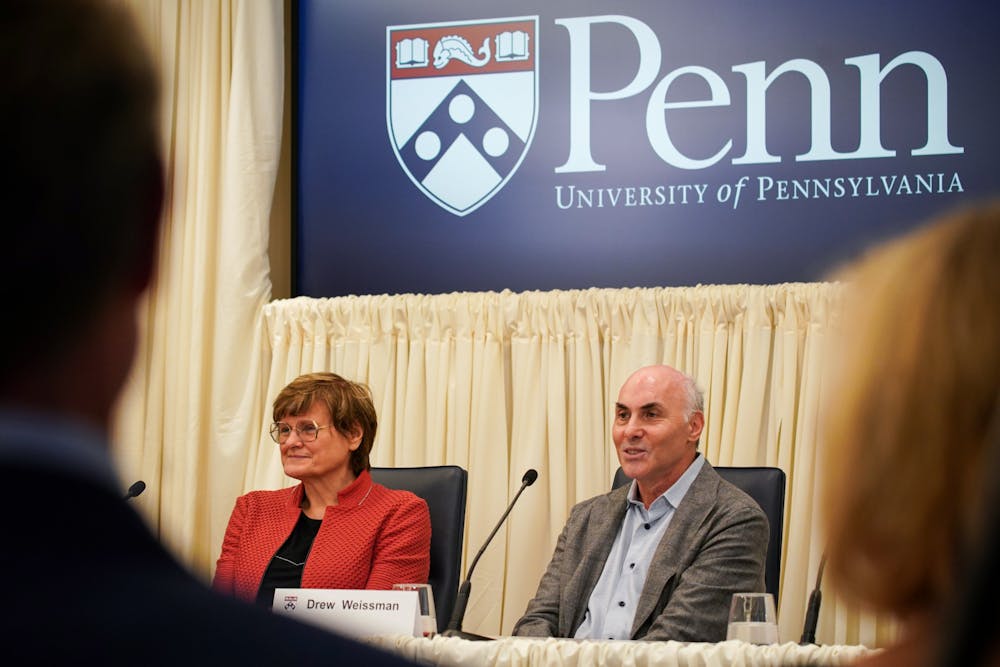
Nobel Prize laureates Katalin Karikó and Drew Weissman will speak alongside Annenberg professor Carlin Romano at Project Lucid's inaugural national conference at Penn.
Credit: Anna VazhaeparambilProject Lucid National Research Conference at Penn will host its inaugural national research conference at Penn on Oct. 4-5, during fall break.
Professor of neurosurgery at the Perelman School of Medicine Katalin Karikó, Roberts Family Professor in Vaccine Research Drew Weissman, and lecturer at the Annenberg School for Communication Carlin Romano will be keynote speakers at the event, with Romano leading a communication workshop after the former two deliver speeches.
Karikó and Weissman won the 2023 Nobel Prize in Medicine or Physiology for their research regarding messenger RNA technology that was used in the Pfizer-BioNTech and Moderna COVID-19 vaccines.
The presentations will be divided into four categories: humanities & social sciences, business, biological & life sciences, and physical sciences & engineering. This expansion from last year’s Lucid Science Challenge, where students only presented research in the latter two categories, is inspired by the National Collegiate Research Conference, which some members of the Project Lucid executive board attended last year.
Project Lucid is a club that was started at Penn last year by College juniors Cice Chen, Richard Chen, and Sophie Kadan to encourage students to develop their scientific communication skills.
“We do see there's always a gap, maybe even some discrimination, against different research disciplines and areas,” Cice Chen, the president of Penn Lucid, said. “It will be nice to bring people together to bridge this gap, and also to actually enhance the communication around different fields.”
Faculty will judge students by how effectively they communicate their research findings and present their slide decks within five minutes. The top three presenters within each of the four categories will be awarded prizes and recognition. The presenters will also have an opportunity to present posters to interested viewers without being judged.
“One of the appealing parts of the communication challenge is that you have to explain to somebody who is well versed in a broad field, but possibly not in your particular field,” Richard Chen, Penn Lucid’s vice president of outreach, said. “Being able to convey your thoughts and research proposal within five minutes is going to be a challenge, but also a very enriching experience as well.”
The conference will also include a career fair for students to network with industry experts, such as representatives from the biotechnology company Aptagen. Participating departments and programs at Penn include the Neuroscience Graduate Group, Medical School, Department of Physics and Astronomy, and the Medical Scientist Training Program.
“It will be especially interesting for them to actually directly talk to admission officers, who can give them some ideas on how they can draft their application and [about] what field they're actually interested in pursuing,” Chen said, referring to understanding more about medical degree and Ph.D. programs.
The conference will conclude with a networking session, a gala with dinner, and an award ceremony. When talking about this segment of the conference, Chen noted the possibility of striking “collaborations between different labs, which we're definitely aiming for.”
Since they began planning for the conference last winter, the Project Lucid team has raised $20,000 in funds to date from the Chemistry Department, Wharton Undergraduate Division, Vagelos Molecular Life Sciences Program, Office of New Student Orientation & Academic Initiatives, Browne Center for International Politics, MindCORE, Career Services, and the Biochemistry and Biophysics Department.
All currently enrolled or recently graduated University students are eligible to apply.
The Project Lucid team has been performing outreach to approximately 250 schools’ academic, career service, and undergraduate research centers nationwide to raise awareness about the event.
The Daily Pennsylvanian is an independent, student-run newspaper. Please consider making a donation to support the coverage that shapes the University. Your generosity ensures a future of strong journalism at Penn.
Donate







